I'm trying to solve a Rosalind basic problem of counting nucleotides in a given sequence, and returning the results in a list. For those ones not familiar with bioinformatics it's just counting the number of occurrences of 4 different characters ('A','C','G','T') inside a string.
I expected collections.Counter to be the fastest method (first because they claim to be high-performance, and second because I saw a lot of people using it for this specific problem).
But to my surprise this method is the slowest!
I compared three different methods, using timeit and running two types of experiments:
- Running a long sequence few times
- Running a short sequence a lot of times.
Here is my code:
import timeit
from collections import Counter
# Method1: using count
def method1(seq):
return [seq.count('A'), seq.count('C'), seq.count('G'), seq.count('T')]
# method 2: using a loop
def method2(seq):
r = [0, 0, 0, 0]
for i in seq:
if i == 'A':
r[0] += 1
elif i == 'C':
r[1] += 1
elif i == 'G':
r[2] += 1
else:
r[3] += 1
return r
# method 3: using Collections.counter
def method3(seq):
counter = Counter(seq)
return [counter['A'], counter['C'], counter['G'], counter['T']]
if __name__ == '__main__':
# Long dummy sequence
long_seq = 'ACAGCATGCA' * 10000000
# Short dummy sequence
short_seq = 'ACAGCATGCA' * 1000
# Test 1: Running a long sequence once
print timeit.timeit("method1(long_seq)", setup='from __main__ import method1, long_seq', number=1)
print timeit.timeit("method2(long_seq)", setup='from __main__ import method2, long_seq', number=1)
print timeit.timeit("method3(long_seq)", setup='from __main__ import method3, long_seq', number=1)
# Test2: Running a short sequence lots of times
print timeit.timeit("method1(short_seq)", setup='from __main__ import method1, short_seq', number=10000)
print timeit.timeit("method2(short_seq)", setup='from __main__ import method2, short_seq', number=10000)
print timeit.timeit("method3(short_seq)", setup='from __main__ import method3, short_seq', number=10000)
Results:
Test1:
Method1: 0.224009990692
Method2: 13.7929501534
Method3: 18.9483819008
Test2:
Method1: 0.224207878113
Method2: 13.8520510197
Method3: 18.9861831665
Method 1 is way faster than method 2 and 3 for both experiments!!
So I have a set of questions:
Am I doing something wrong or it is indeed slower than the other two approaches? Could someone run the same code and share the results?
In case my results are correct, (and maybe this should be another question) is there a faster method to solve this problem than using method 1?
If
countis faster, then what's the deal withcollections.Counter?

